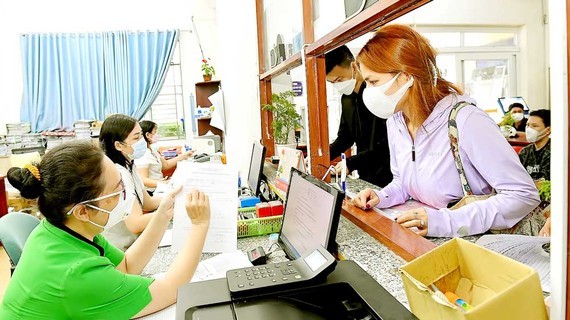
“Vietnam is successfully fulfilling its commitment on trade facilitation”, said the United States Agency for International Development (USAID) in its survey on the effectiveness of administrative reform regarding Vietnam’s specialized inspection and import-export customs procedures.
In 2015, there were nearly 83,000 goods types subject to specialized inspection, and all consignments had to undergo inspection before customs clearance. That was not to mention considerable overlaps among different ministries and functional agencies. They unavoidably created more unofficial costs to businesses, while the customs clearance was irritably prolonged.
On March 12, 2015, the Government released Resolution No.19/NQ-CP, and another related Resolution No.02/NQ-CP on January 10, 2022. Accordingly, related ministries and state agencies are requested to review and reduce 50 percent of the items subject to specialized inspection, along with the most detailed file code. Also, the proportion of imported consignments undergoing specialized inspection must drop to 10 percent. In addition, electronic customs procedures, risk management, and post-inspection were applied.
These solutions have made breakthroughs in import-export activities. Statistics from the General Department of Vietnam Customs reveal that there is a decrease to 19 percent of specialized inspection declaration forms compared to before 2015. This has helped businesses to save logistics costs and facilitate trades, greatly increasing their international competitiveness. The import-export turnover in the first 11 months of 2022 reached US$673.82 billion, $342 billion of which comes from export activities, a rise by 13.4 percent compared to this time last year.
Happy as it is, there are still work to do to truly support enterprises in their recovery after the Covid-19 pandemic. Unreasonable regulations must be eliminated. It is urgently necessary to synchronize electronic customs procedures to stop manual work.
In the long term, an online training session must be developed to answer the increasing demands of the private, public sectors on trade, customs training. This will become the foundation to strengthen the capacity of customs officers, which is the basis for the reform and modernization of the customs.
Moreover, functional agencies should host more monthly or quarterly discussions with businesses to timely receive reports on current problems for corresponding solutions.
A simultaneous adoption of the above measures creates an attractive trading environment to improve the national competitiveness in the region and the world, which in turn can address the unemployment issue and offer high social security for the community.
























